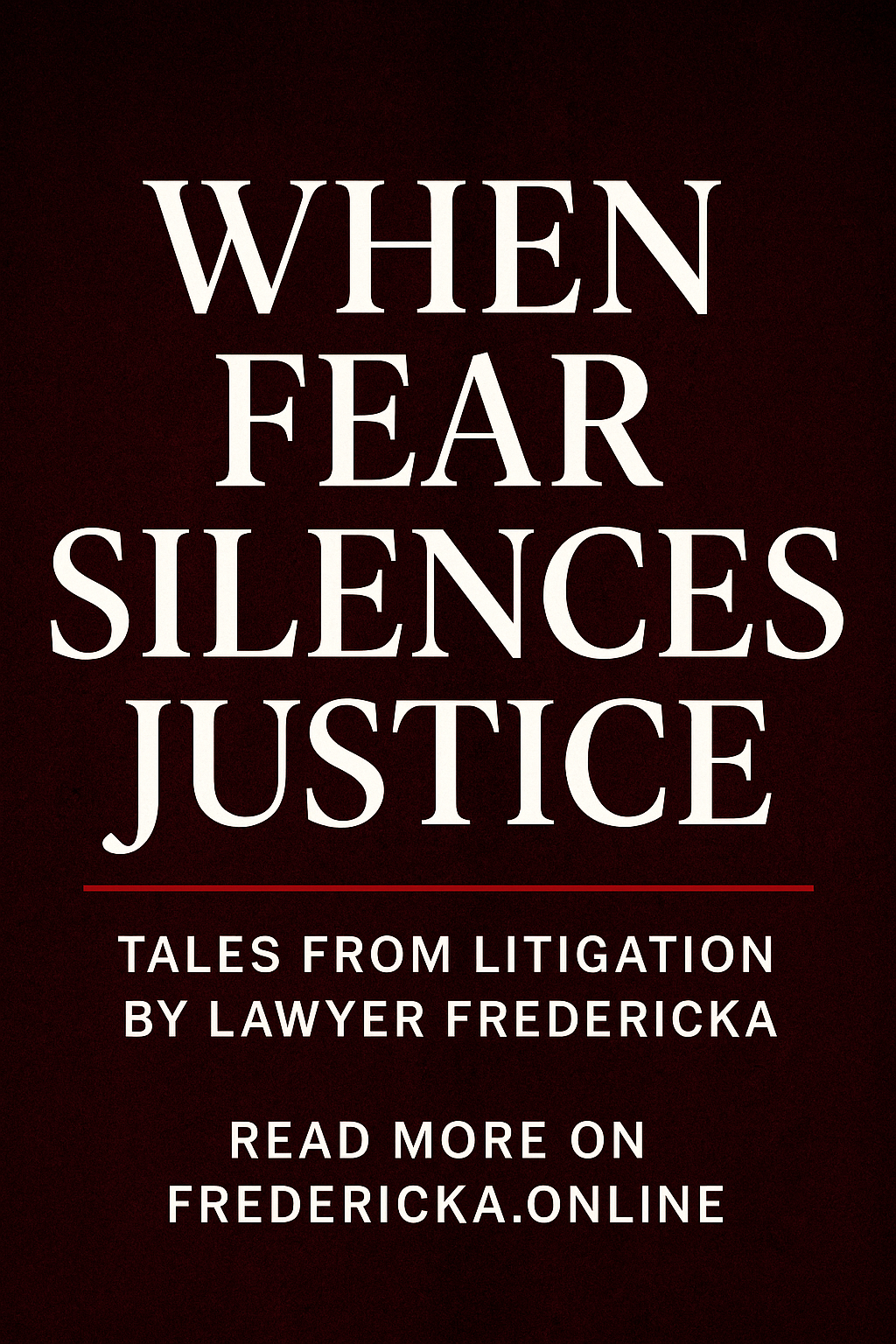
When Fear Silences Justice
Tales from Litigation by Lawyer Fredericka

Tales from Litigation by Lawyer Fredericka
The case of Ransford Owusu has got me thinking about our criminal justice system. A sixteen-year-old boy, allegedly abused for years by someone who should have protected him, his soccer coach. His mother and the public claim sexual abuse is the cause of death, yet the Ghana Police Service press release of 8th November, 2025 hints at liver and kidney failure.
I chanced upon a video by Princess Burland, who highlighted the fear tactics many abusers use to silence their victims. According to her investigation, the alleged abuser didn’t just threaten punishment; he threatened death if the boy ever spoke up.
Fear is powerful. Some religions use it to maintain control over their followers; how much more an adult with uncontrolled sexual urges, wielding fear like a weapon.
From the press release, little was said about the report made to the Amasaman Police, except that it was lodged in February 2025. As a lawyer, understanding the complexities of building a criminal case, I can’t help but wonder – would anything substantial have happened by November 2025 if the media and public hadn’t taken up Ransford’s story?
February, March, April, May, June, July, August, September, October, November – almost nine months passed. But for public outcry and media pressure, what would have become of the complaint made by Ransford’s mother?
The case of Ransford Owusu has got me thinking about our criminal justice system:
It goes on and on.
My years in the law have taught me something sobering; fear keeps too many stories buried. Sometimes it’s fear of death. Sometimes it’s fear of disgrace. Sometimes it’s fear of the system itself. Yet the law can only work with what is brought before it, and when silence reigns, truth dies a quiet death long before the case reaches court.
Eventually, the case against the alleged abuser of Ransford might make it to court. In the courtroom, you’ll hear the arguments. You’ll see the motions. You’ll count the exhibits. But you’ll also come to realize something many refuse to accept, the courtroom isn’t where truth lives. It is where evidence speaks and where fear, silence, and power plays often hide behind the wig and gown.
The Ransford case, as at now, isn’t just one tragedy. It’s a mirror, reflecting how fragile justice becomes when fear and systemic failure surround it.
I write this because I believe in what’s hidden: the cries behind locked doors, the threats whispered in shadows, the victims too afraid to speak. I educate people freely, because I need us to Speak up, Keep records, Take pictures, Save messages. Speak up.
As mortals, fear of death should not silence us. Remember, when the truth is under attack, evidence becomes your only voice.
Lawyer Fredericka